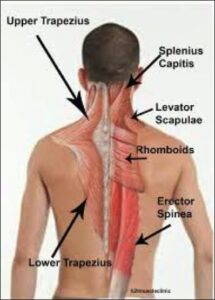We all know that familiar feeling of muscle tightness. Maybe it’s after an intense training session, or it coincides with stress and lack of sleep.
Maybe you’re not sure why you have it, but it’s been nagging you and you just can’t seem to shake it. A common narrative in rehab and performance is, “Tight muscles are weak muscles.”
But are they? First, how do we know what is tight?
Range of motion is the most straightforward way to assess for tightness but it’s still pretty nonspecific because in addition to muscle length, it is also influenced by joint capsules, normal anatomic variation, and neural tension.
Other times, a muscle may feel tight but the associated joints have normal ranges of motion. Tightness isn’t just the inability to express a certain range of motion, it’s also a sensation.
Does that sensation come from weakness? Is it some sort of built-in protected mechanism? Maybe, but there’s no way we can know for sure.
Sensation is incredibly multifactorial, so if you tell me your muscle feels tight, I believe you. Just know that it doesn’t necessarily mean your muscle is shortened, or weak.
Some might say, “my [insert muscle] felt tight and I did targeted strengthening and then if felt better.”
Okay, great. I’m glad you’re feeling better! But we still don’t know that your muscle was weak.
Weakness can be measured in relative terms (for example, compared to your side that doesn’t feel tight) or it can be measured against a standard.
The problem here is that asymmetry in strength isn’t inherently bad and there aren’t well established standards of strength.
For example, there is no normative value for hip flexor strength for twenty-something females, so even if I objectively measure my hip flexor strength, I have no way of knowing how I measure up to other women my age, level of fitness, etc. In other words, I don’t have a way to know if I have a strength deficit.
Maybe targeted strengthening increases blood flow to the muscle that feels tight.
Maybe the act of performing strengthening provides sensory input that changes your perception of tightness.
At the end of the day, we just don’t know for sure. It’s okay to not know exactly why an intervention seems to work, because that cultivates critical thinking and an open mind.
Anecdotally, many coaches and clinicians have noticed that tight muscles often feel better after performing targeted strengthening exercises, and that’s just another reason to strength train!
Do your traps feel tight? Try some shrugs.
Got tight hammies? Try some Romanian deadlifts.
Pesky hip flexors? How about a split squat variation or a psoas march.
Give it some time and you might even get stronger, regardless of whether that muscle was weak when you started.
By Taylor Eckel


